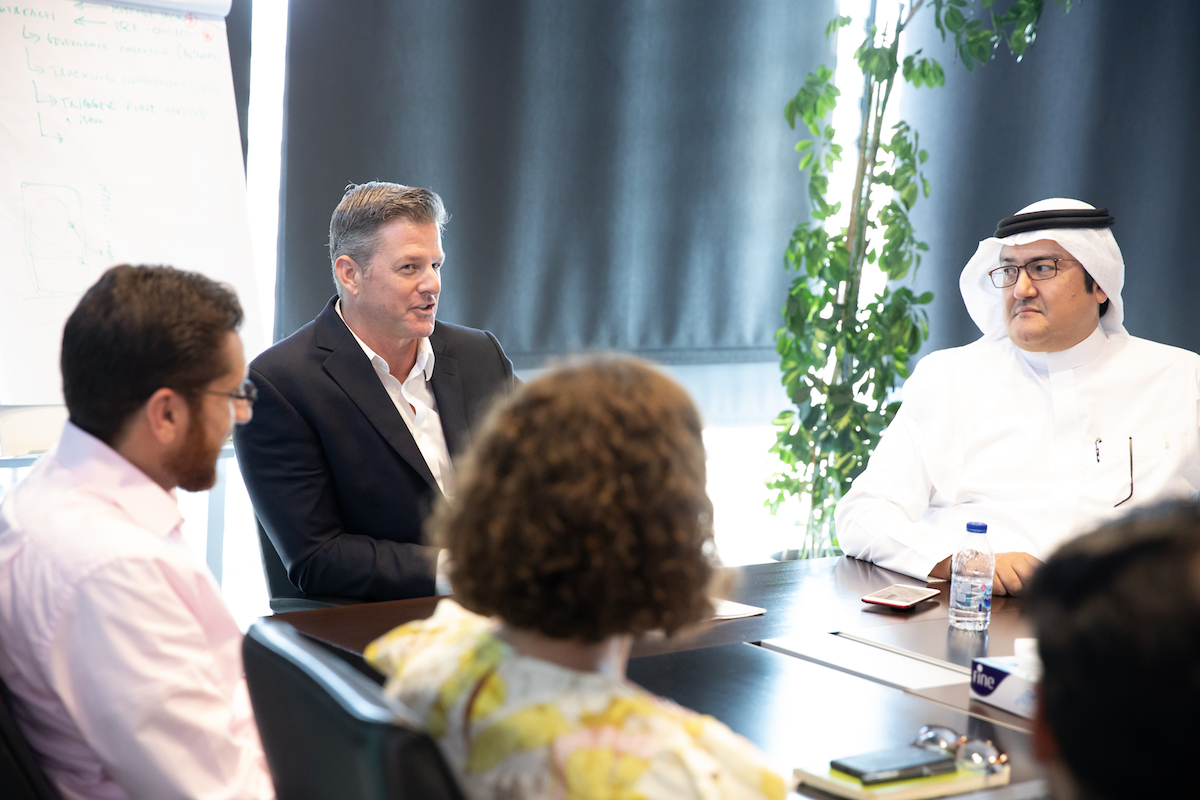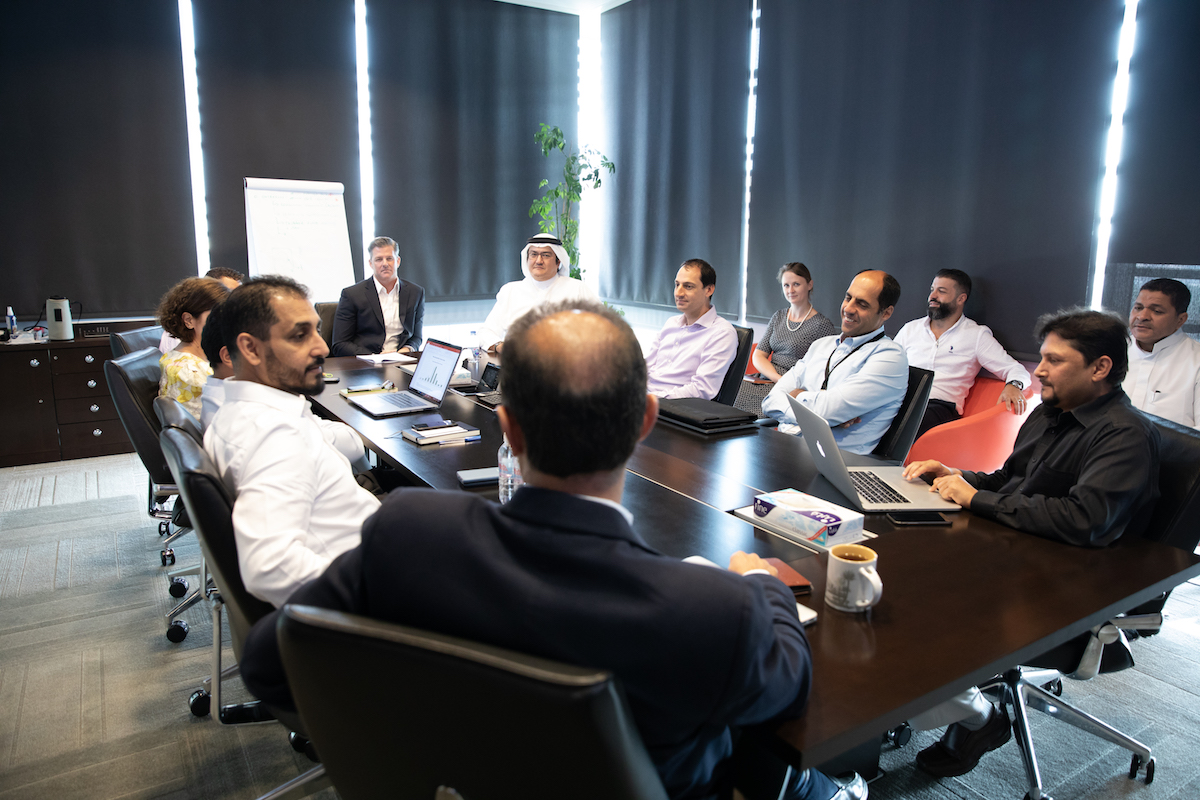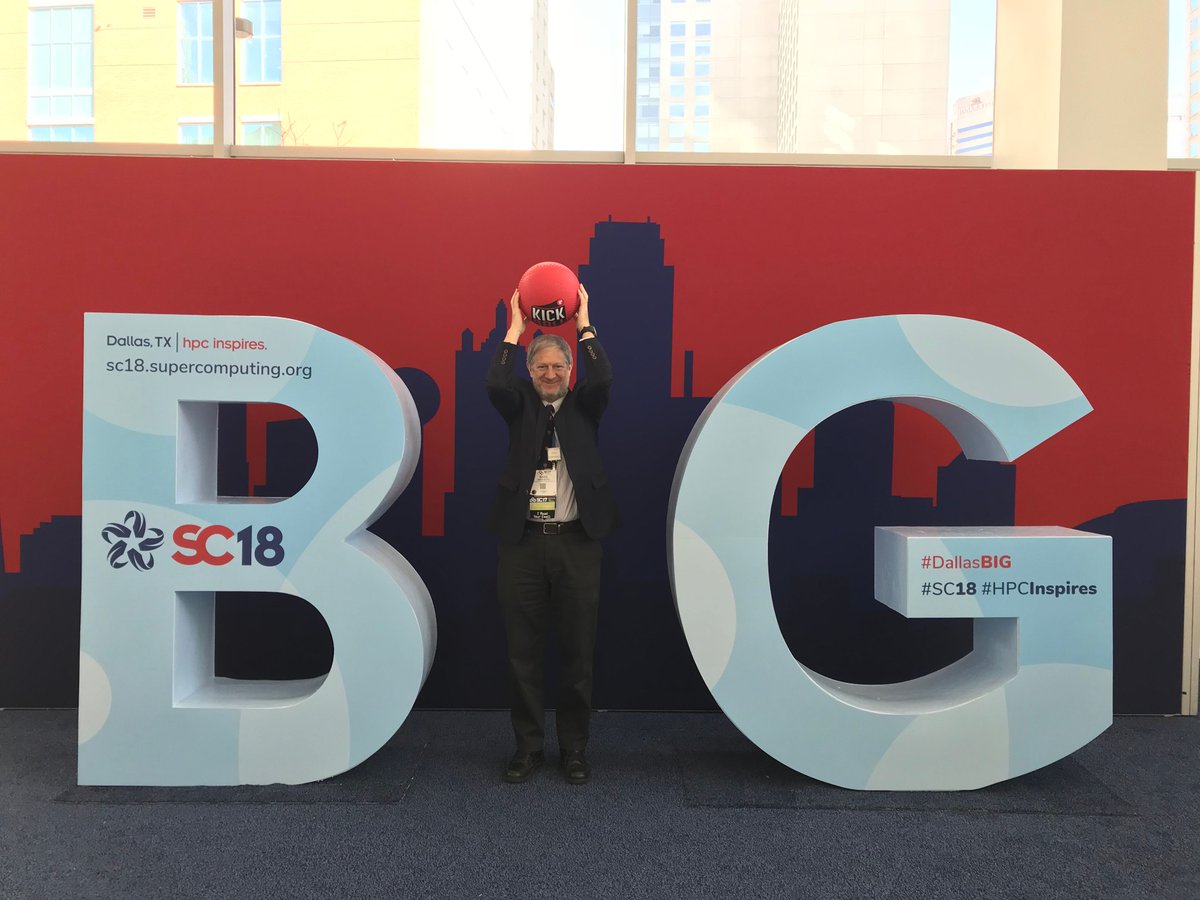A mission to optimize scientific research with the help of IT

Jason Roos (center), KAUST chief information officer, and his team of IT professionals help the KAUST Core Labs support the University's faculty, students and staff to carry out cutting-edge research through high performance computing and supercomputing. Photo by Sarah Munshi.
-By Lulwah Shalhoub, KAUST News
KAUST is on a mission to support research through high performance computing and supercomputing. A solid IT and computing platform means optimizing scientific research experience and outcome in the fields of science and technology.
"Here [at KAUST], the mission is dominated more by supporting research first rather than the traditional IT services," said Jason Roos, the University's chief information officer (CIO).
Coming from an IT background in the healthcare sector in the U.S., Roos looked at IT in a mission critical capacity, which is looking beyond what is normally considered in the delivery of IT services.
"Mission critical requires a very disciplined approach to delivering IT because a lot of it impacts people's lives," he said.
Supercomputing at KAUST
Supporting research activity through high performance computing and the Supercomputing Core Lab led by Dr. Jysoo Lee—primary missions at KAUST—are both things he is familiar with, having supported similar activities at Stanford University and City of Hope cancer research center. He also spent nearly 10 years at Texas Children's Hospital in Houston, where research was supported by high performance computing.
"When it comes to supporting supercomputing here at KAUST, it is the role of IT to ensure that the data center facilities, data storage, network connectivity and security are sufficient to support Dr. Lee and his team in the successful management and operation of Shaheen II," stated Roos.
For Roos, IT is the ability to make information available and the ability to support decisions.
"It allows scientists to be able to make decisions and have information at their fingertips to do the right thing at the right time," he explained.

Shaheen II (pictured here) is the University's supercomputer. File photo.
KAUST is special as is it home to Shaheen II, the fastest supercomputer in the Middle East and the 29th fastest in the world, and to state-of-the art high technology machines, as rated in June 2018 at ISC High Performance in Frankfurt, Germany.
"What's amazing about this place is that it has probably some of the best facilities I have ever seen in the world. KAUST has invested in technologies that are second to none, and these technologies are exceptionally managed by the KAUST Core Labs under the leadership of Dr. Justin Mynar. The supercomputer provides capabilities to KAUST that most universities in the world do not have access to. In fact, I do not know of any other university that has a supercomputer on a scale of Shaheen II," Roos said.
He added that most supercomputers in the class of Shaheen II are usually run by national laboratories, not universities.
"This puts KAUST in a very unique position to be a world leader in that space," Roos said.

Jason Roos, the chief information officer of KAUST, believes supporting research that requires supercomputing means staying connected to the rest of the world for international collaborations. Image courtesy of Shutterstock.
Having advanced facilities that serve a wide range of researchers helps attract top talent to the University. KAUST gives researchers a platform to carry out work that might not be possible in other institutions. Roos believes that supporting research requiring supercomputing capabilities necessitates maintaining connectivity to the rest of the world so the University can collaborate with other top-tier institutes.
"This is...a priority of mine to ensure that we continue to maintain the connectivity required to do collaborative work between institutes in Europe as well as the U.S. No university operates in isolation—it requires collaboration. With its research park and economic development initiatives that are underway, KAUST is able to take research discoveries...and create companies...result[ing] in economic growth and job creation for Saudis," he said.
Advanced Computing Center

Jason Roos, KAUST chief information officer, is pictured here with a team of IT and supercomputing experts on campus. He aims to 'leverage the high performance computing capabilities of KAUST,' he said. Photo by Sarah Munshi.
Most organizations collect an immense amount of information, but collecting the information does not do much unless one can do something meaningful with it. There are several challenges that can be solved in different sectors—whether in energy, petrochemicals or cyber security.
"If you are talking about cyber security, you can see what is happening now [and] the behavior that you want to take action on...[T]o be able to have a platform and the expertise to figure out how to tackle the problem is something that KAUST is uniquely positioned to...provide. [The sought after result] is to create a resource that organizations can leverage to advance Saudi Arabia in various areas," he added.
KAUST at SC18
Each year, KAUST makes a strong presence at the International Conference for High Performance Computing, Networking, Storage, and Analysis (SC), where the University can interact with leading supercomputing organizations. The event helps to introduce KAUST in the high performing computing sphere. In November of this year, SC18 will take place in Dallas, Texas, and it is a special event, as David Keyes, director of the University's Extreme Computing Research Center (ECRC), will chair the conference's technical program.

David Keyes (pictured), director of the University's Extreme Computing Research Center (ECRC), will chair the technical program at the International Conference for High Performance Computing, Networking, Storage, and Analysis (SC) in Dallas, Texas, this November. File photo.
Related stories:
-
ANSYS, Saudi Aramco and KAUST achieve a new supercomputing milestone
-
Empowering discovery: Shaheen XC40 ranks seventh among world's supercomputers
-
KAUST Makes Strategic Investment in Supercomputing to Advance Scientific Discovery
-
Shaheen-Cray XC40 supercomputer arrives at KAUST
-
KAUST makes a distinctive presence at SC17

